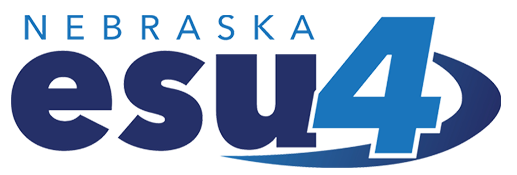5037: Student Internet and Computer Access
Students are expected to use computers and the Internet as an educational resource. The following procedures and guidelines govern the use of computers and the Internet at the ESU.
- Student Expectations in the Use of the Internet
- Acceptable Use
- Students may use the Internet to conduct research assigned by teachers.
- Students may use the Internet to conduct research for classroom projects.
- Students may use the Internet to gain access to information about current events.
- Students may use the Internet to conduct research for ESU-related activities.
- Students may use the Internet for appropriate educational purposes.
- Unacceptable Use
- Students shall not use ESU computers to gain access to material that is obscene, pornographic, harmful to minors, or otherwise inappropriate for educational uses.
- Students shall not engage in any illegal or inappropriate activities on ESU computers, including the downloading and copying of copyrighted material.
- Students shall not use e-mail, chat rooms, instant messaging, social media, or other forms of direct electronic communications on ESU computers for any unauthorized or unlawful purpose or in violation of any ESU policy or directive.
- Students shall not use ESU computers to participate in on-line auctions, on-line gaming or music sharing systems.
- Students shall not disclose personal information, such as their names, school, addresses, or telephone numbers outside the ESU network.
- Students shall not use ESU computers for commercial advertising or political advocacy of any kind without the express written permission of the system administrator.
- Students shall not publish web pages that purport to represent the ESU or the work of students at the ESU without the express written permission of the system administrator.
- Students shall not erase, rename or make unusable anyone else’s computer files, programs or disks.
- Students shall not share their passwords with fellow students, ESU volunteers or any other individuals, and shall not use, or try to discover, another user’s password.
- Students shall not copy, change or transfer any software or documentation provided by the ESU, teachers or another student without permission from the system administrator.
- Students shall not write, produce, generate, copy, propagate or attempt to introduce any computer code designed to self-replicate, damage, or otherwise hinder the performance of any computer’s memory, file system, or software. Such software is often called, but is not limited to, a bug, virus, worm, or Trojan Horse.
- Students shall not configure or troubleshoot computers, networks, printers or other associated equipment, except as directed by a teacher or the system administrator.
- Students shall not take home technology equipment (hardware or software) without permission of the system administrator.
- Students shall not forge electronic mail messages or web pages.
- Enforcement
- Methods of Enforcement
- The ESU monitors all Internet communications, Internet usage and patterns of Internet usage. Students have no right of privacy to any Internet communications or other electronic files. The computer system is owned by the ESU. As with any ESU property, any electronic files on the system are subject to search and inspection at any time.
- The ESU uses a technology protection measure that blocks access to some Internet sites that are not in accordance with the policy of the ESU. Standard use of the Internet utilizes a proxy server-based filter that screens for non-curriculum related pages.
- Due to the nature of filtering technology, the filter may at times filter pages that are appropriate for student research. The system administrator may override the technology protection measure for the student to access a site with legitimate educational value that is wrongly blocked.
- The ESU staff will monitor students' use of the Internet through direct supervision and by monitoring Internet use history to ensure enforcement of the policy.
- Consequences for Violation of this Policy
- Access to the ESU’s computer system and to the Internet is a privilege, not a right. Any violation of ESU policy and rules may result in:
- Loss of computer privileges;
- Suspension or expulsion from the ESU and/or its programs; and
- Other discipline as ESU administration and the ESU board deem appropriate.
- Students who use ESU computer systems without permission and for non-ESU purposes may be guilty of a criminal violation and will be prosecuted.
- Children’s Online Privacy Protection Act (COPPA)
- The ESU will not allow companies to collect personal information from children under 13 for commercial purposes. The ESU will make reasonable efforts to disable advertising in educational computer applications.
- This policy allows the ESU to act as an agent for parents in the collection of information within the ESU context. The ESU’s use of student information is solely for education purposes.
Adopted on: June 8, 2009
Revised on: May 13, 2019
Revised on: Nov. 13, 2023
Reviewed on: January 9, 2012
Reviewed on: Oct. 9, 2023
Revised on: Nov. 13, 2023
